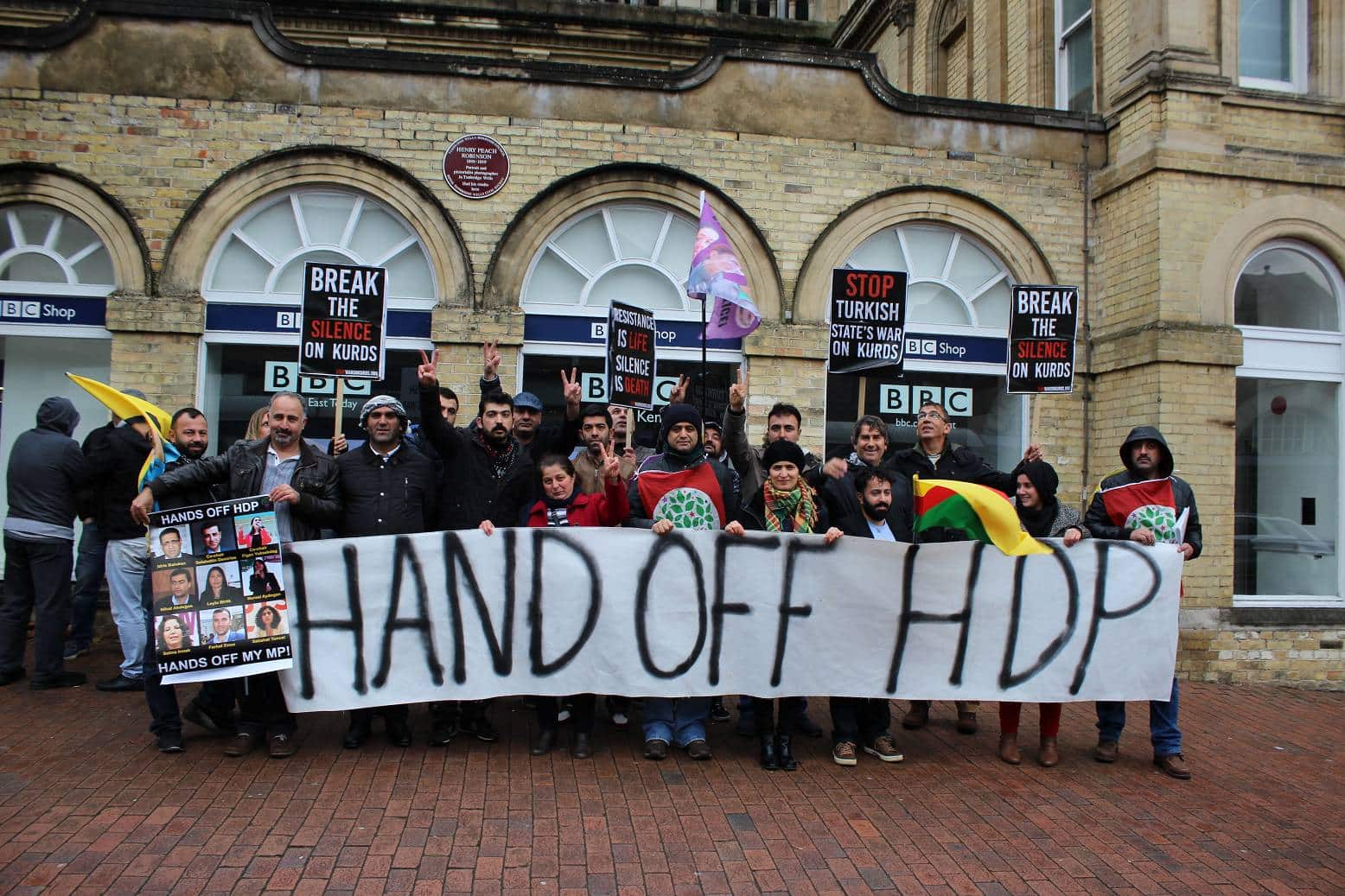A closure of a post office, out of control littering or the lack of safe cycling lanes – these are the types of issues that we’d normally expect to see people take to the streets in Tunbridge Wells.
But last week the town played host to a protest from The Democratic Unity of Forces, a group of predominantly Kurdish people who were speaking out against the reaction of Turkish President Erdogan’s an attempt coup in July.
Since the failed overthrow, several journalists and politicians have been arrested as well as a number of media outlets closed, in what the protest group from Brighton argue is an authoritarian clampdown on ‘all-sections’ of the government’s opposition.
On November 4, 12 MPs from the pro-Kurdish Peoples’ Democratic Party were arrested, prompting the group to tour around the UK’s towns and cities to spread awareness. Having protested outside parliament on the day of the arrests, they have since campaigned in Brighton, with Crawley, Worthing and Croydon next on their tour.
Chanting ‘Wake up UK’ and ‘He is a dictator’, the group stood outside the BBC South East offices in the Great Hall for two hours on Wednesday (November 9) lunchtime.
One protester, who only wished to be named as Mr Mehmet, said: “This is about the arrests of innocent people by Erdogan’s regime. We are speaking out against the persecution of journalists and Kurdish politicians because the situation of violence and arrests is really worrying.”
When asked about whether there was a strong Kurdish community in Tunbridge Wells, Mr Mehmet – who was born in the Kurdish region of Turkey but has lived in the town for 23 years – said: “Yes, well I wouldn’t say we are a community, we are just people who live and work here but there are a few.”
The Times reached out to the Turkish embassy, who explained that the Kurdish MPs had been charged with ‘terrorism-linked’ offences. They claim these MPs had refused to give depositions to judicial authorities and subsequently, arrest warrants were issued to 12 of them on November 4. Three were released, with nine detained after being charged with the terror offences, citing links to the activity of the Kurdistan Workers’ Party (PKK), which the EU and the USA regard as a terrorist organisation.
The embassy did not respond to complaints over the closure of 170 media outlets and the arrest of 128 journalists since the declaration of the state of emergency after the coup attempt.








